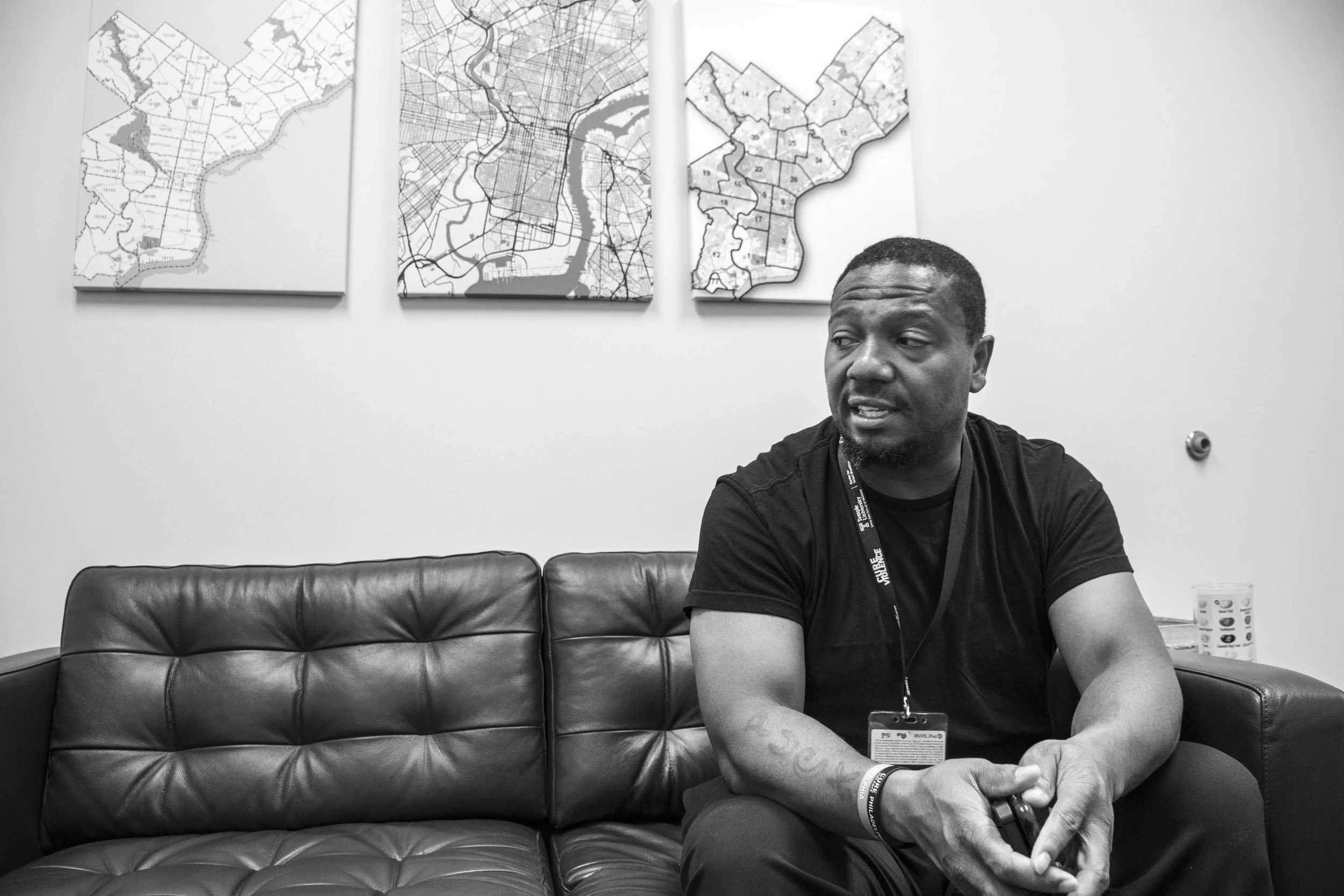
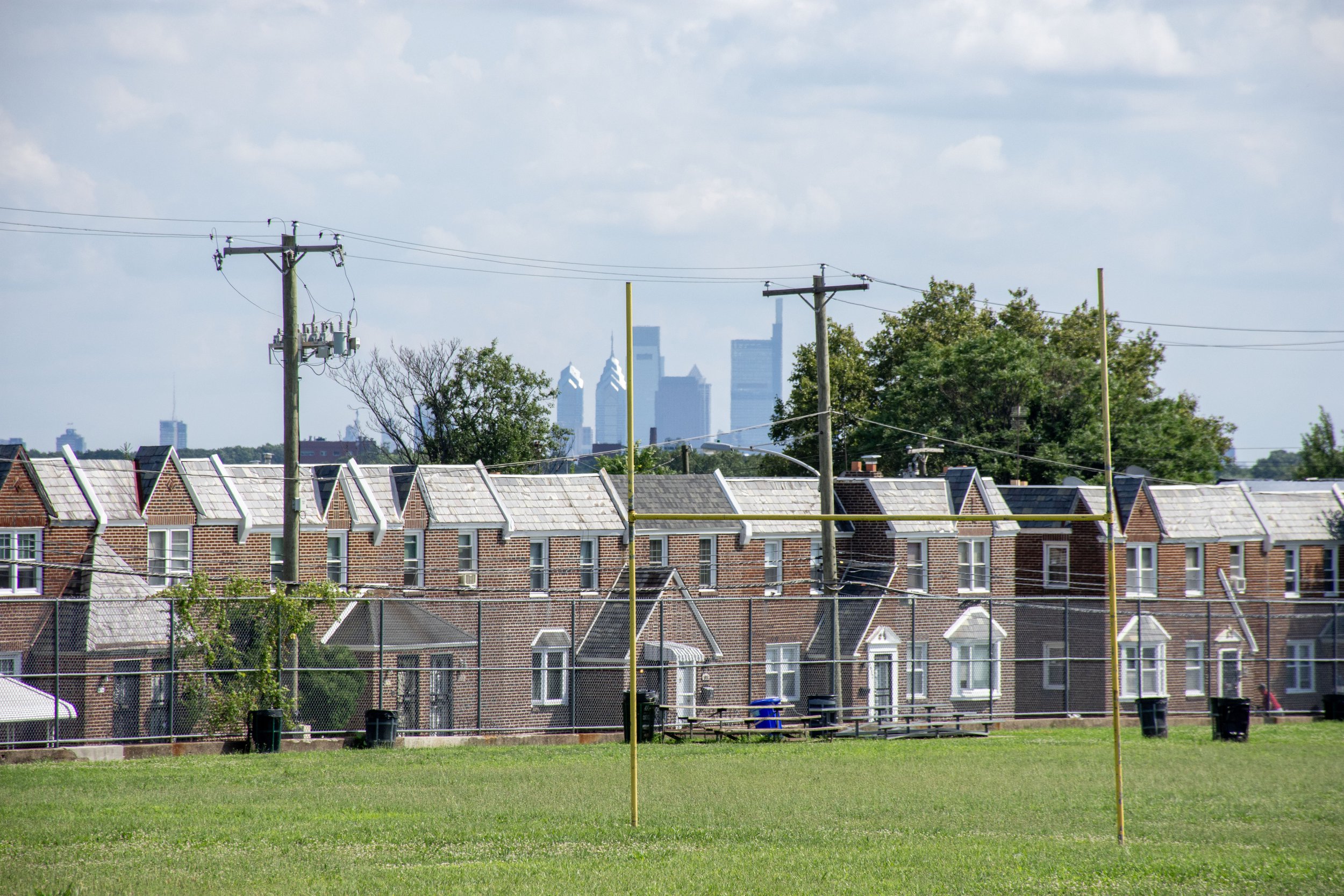

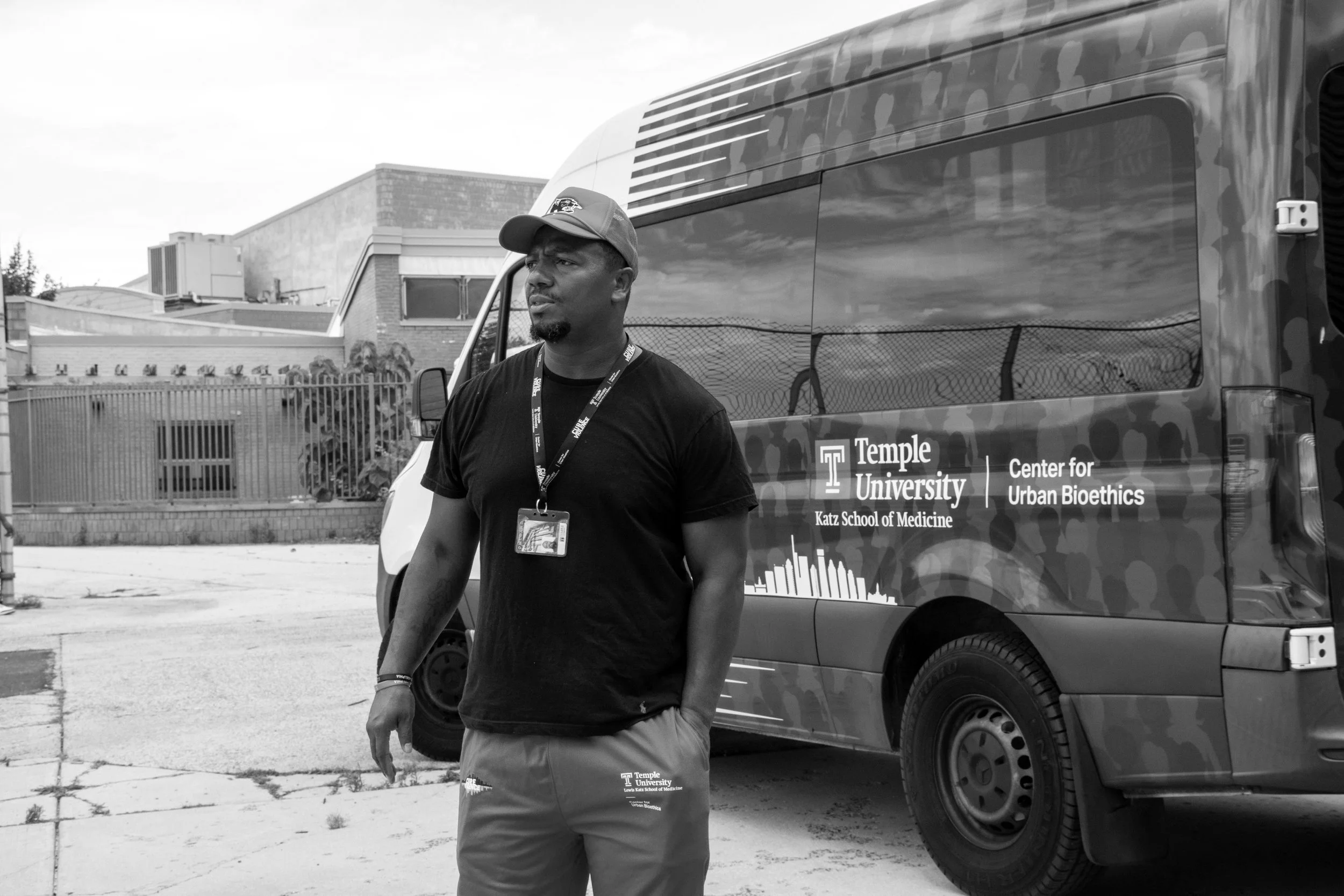



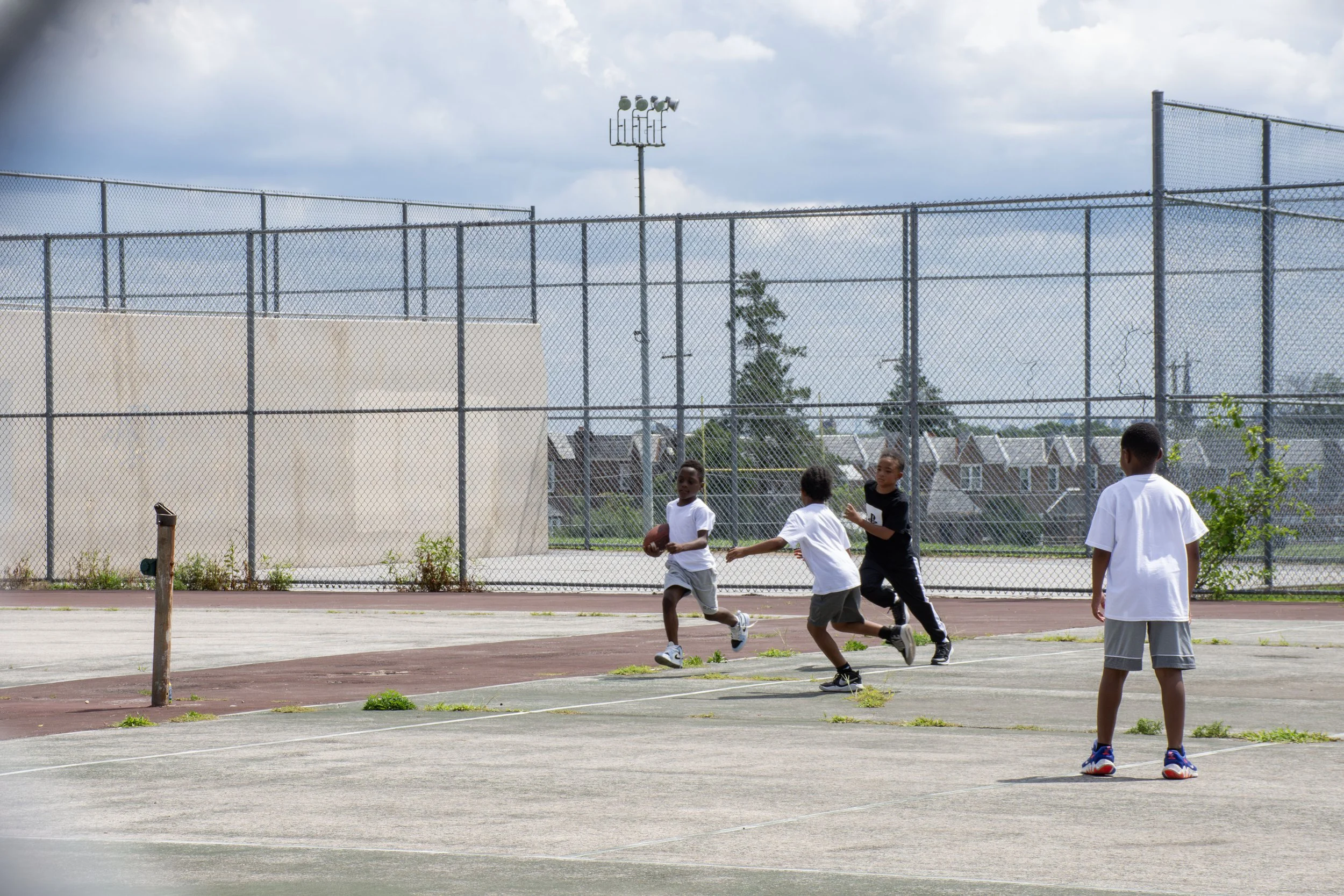
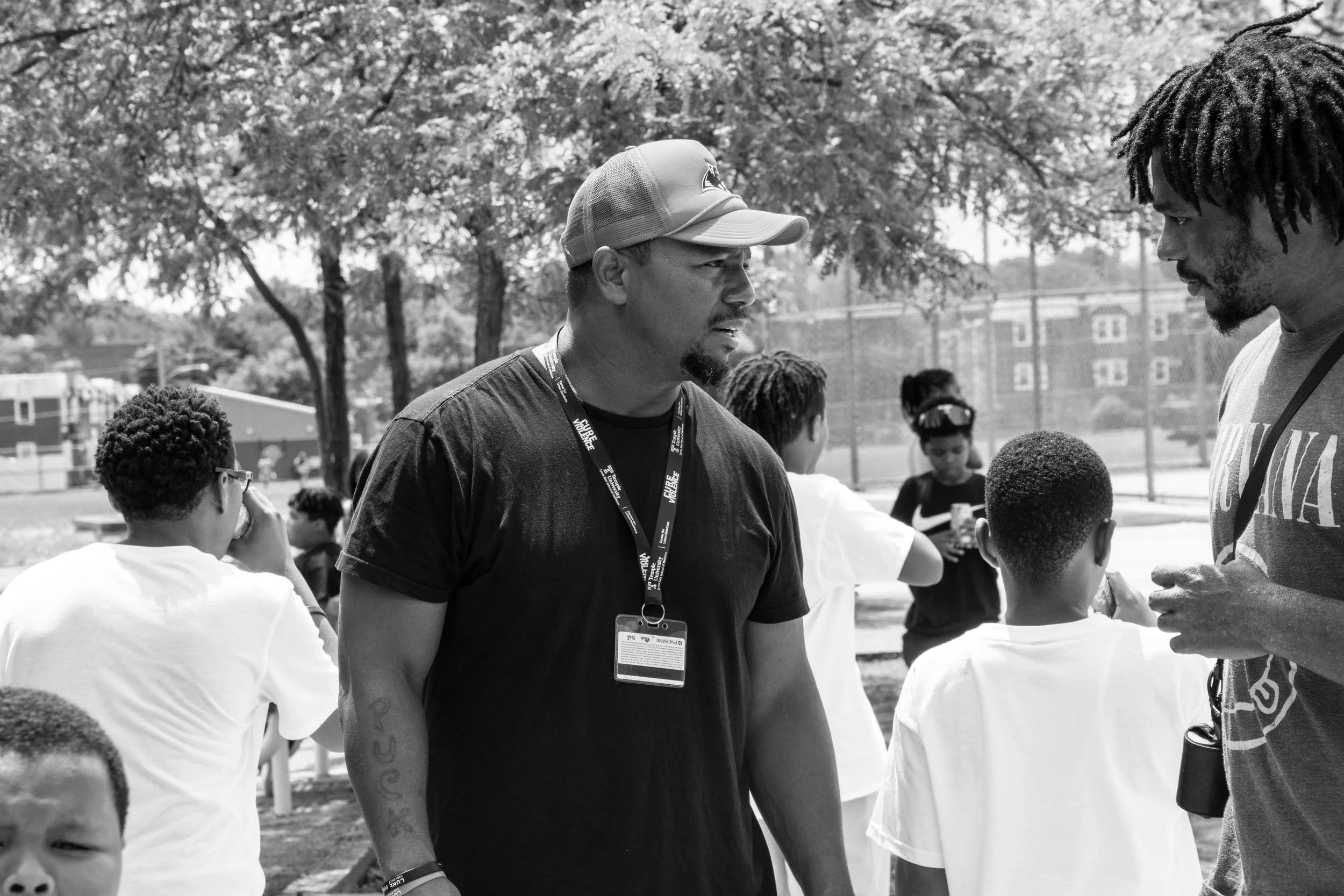
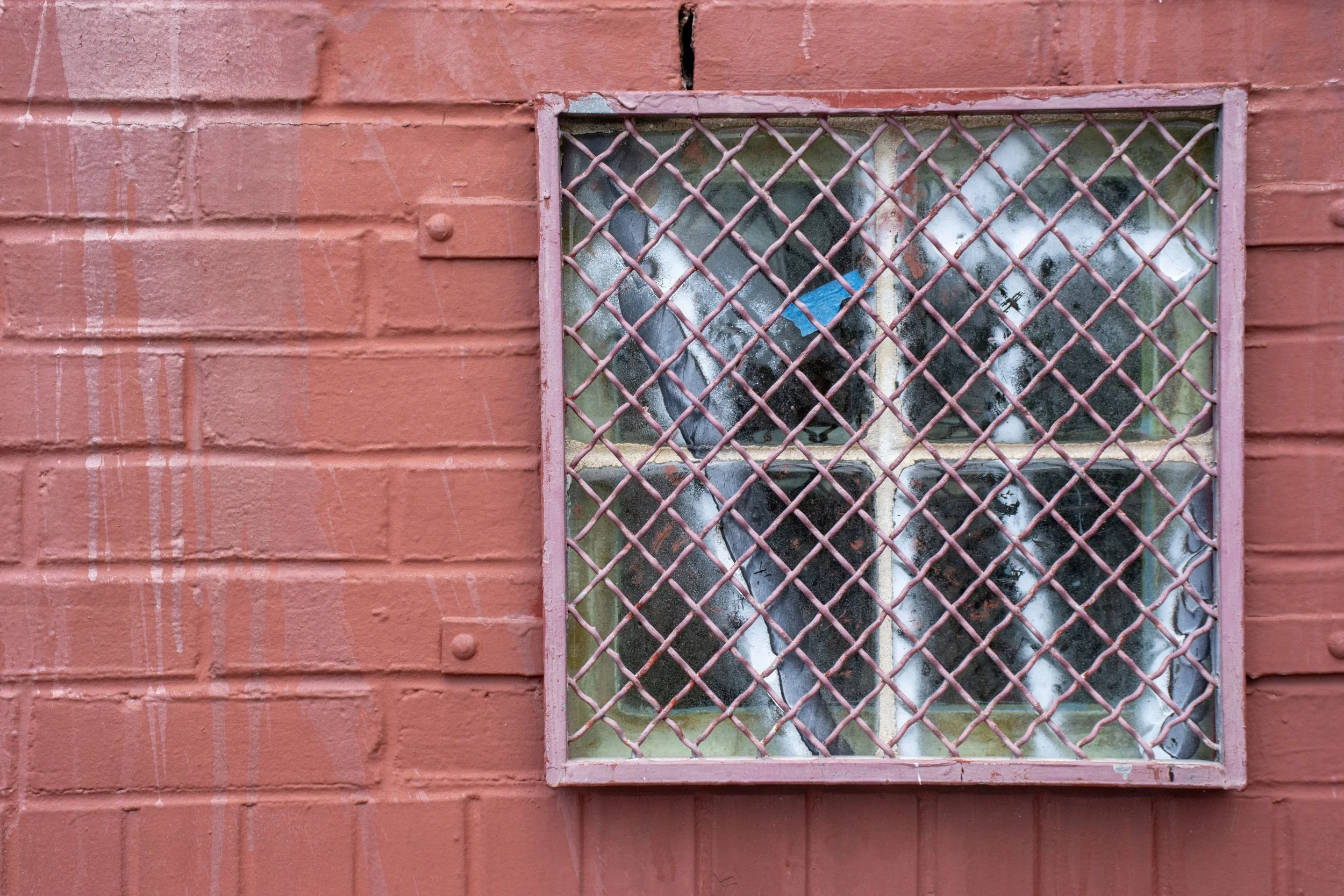

Clifford Puckett
North Philadelphia
Clifford Puckett, known to his students as Mr. Puck, is working to disrupt the school-to-prison pipeline. He’s quick to point out the many ways he sees young people in his community being let down – students falling behind in schools that don’t equip them for future careers, parents struggling to stay afloat themselves, a lack of rec centers and extracurricular outlets, and a market that makes guns and drugs widely available.
Puckett knows many of these struggles himself. Growing up in North Philly, his mother struggled to provide for him and his siblings. He kept his family afloat by starting to sell drugs in his early teen years, and landed in jail on drug charges. He now works multiple jobs to support his own kids, and found a calling to help young people pursue education and employment. He began by coaching high school football and eventually picked up work as a special education aide at Simon Gratz High School in North Philadelphia. In January, he transitioned to working at Gratz as one of two mentors with Cure Violence Philadelphia.
The Kids
“The violence don’t come from the adults, it comes from the kids. In all [the schools], it needs to be addressed. They don't have outlets to do things anymore. When I was young, they had rec centers, leagues where you could go play for free. Now … they closed down all the activity centers. There’s nothing for the kids to do, so when they get out of school, they go stand on the corner. After you stand on the corner so much, you’re like, ‘Shit, I'm out here all day, I might as well sell drugs’ … The drugs is gonna bring violence … It's creating commotion, leads back to violence, because everybody is selling drugs, because the kids don't have anything to do.
“Or they’re putting the games on TV. When I was little, everybody played Pac Man, Speed Racer, football games. Now they’re playing Grand Theft Auto, they’re stealing cars. Stealing cars is at an all time high right now. And shootings – Grand Theft Auto, Call of Duty, it’s showing you how to go to war …They put it in front of your face for you to do it. Kids 13 years old, they’re talking to kids in whole ‘nother states online, learning how to kill.
“The U.S. is not like it used to be … Some people say when you turn 18, you’re out of the house. So now you put your kid out there, 18, they don’t have no life skills, they don't have no professional skills. You put them in the streets to do what? The only option leaving the house with no life skills is to hustle. Hustling is 10 times harder than working a job, because with hustling you have to deal with if you’re gonna get the respect and people not rob you, or if you’re gonna have to kill people to get the respect.”
The People We Sacrifice
“I was 12 years old getting paid $1000 a week. Still going to middle school and everything, walking around with money in my pocket. I bought my first car when I was 12, and my first apartment when I was 13. I told my mom, ‘Listen, I'm gonna leave because I don’t want to bring the drugs in your house, but I’m gonna come back every Friday and give you allowance.’ My mom wasn't making a lot of money. She was living on welfare. So I would give my mom $500 out of my $1000 every week.
“Back then, in the 90s, $500 was a lot of money. We used to go down to 9th and Washington, I used to pick her up, take her shopping. Everybody would come over to the house, like ‘They got food in there for days.’ They stopped going to the milk truck that would come out and give you free bread, free milk ... My sisters, they went to junior prom, and soph hop, and senior prom, I paid for it all. I was the youngest one. My sisters love me to death to this day.
“I told them, ‘I had to make a decision. What y’all was doing, it wasn't working’ … So some families and some households, the kids sell drugs because they don’t have no decision. My mom, she didn't get high or none of that, she just didn't have no money, she didn’t work. My dad had a whole ‘nother wife somewhere else. He made his decision, so I made my decision. My whole family … I did things that they hated because I had to. As you get so far in selling drugs and dealing, you have to make sacrifices … It's all about the sacrifice – who will make the sacrifice for the family.
“I didn’t do too much drastic stuff. To me, I don't consider taking a route of selling drugs as drastic. It was a route like I had to do something … I actually started working for Temple … Back in ‘99, I was working for Spectrum. When I got locked up it was actually by Temple Police, because I grew up by main campus, down by the projects. I was already targeted. They just couldn't believe I had a job. And when it hit the fan that I had the job, it was already too late. I had caught two cases. I was piling it up. They’re looking at me like damn, I don’t want to lock you up, but I gotta lock you up.
“The people that we sacrifice in this world and send to jail, they’re the people that’s hands were forced.”
A Different Person
“I was in and out of jail because of small parole violations. It wasn’t like I was getting locked up because I was catching case after case … it was because I wouldn’t listen to my PO … My parole officer … would say, ‘You gotta come see me every Thursday, I want a piss test.’ I’m gonna do it for like six months, but I'm not coming to see you 52 weeks a year for five years … I can’t do it if I get a job and they’re telling me I can’t have off Thursday morning every week … So I’d get locked up, hold me for 80 days, 90 days, 60 days.
“My mom passed away in 2009. I was incarcerated, and I just felt as though I got too much going on in life to just keep coming back here to jail, throwing my life away. I decided I'm gonna coach football. I was good at football, and when I came home and started coaching, it was like … I was still there, I was still playing the game.
“Then, I was a special education teacher, dealing with kids that have special needs and they need one-on-one attention … Working at different high schools, they might have kids that’s challenged and they need attention one on one, and I just boost their numbers up, their grades, make them feel regular. Because they’re only slow because they don't trust you, they don't believe in the people that they're around.
“I'm not a teacher. I am, but I'm not. But teachers, they don't care no more. They don't try to identify who needs help in class … They’re like, ‘She’s the smart one, let’s deal with her.’
“Workwise, I can help you … With English, all kids can’t write what they’re thinking … But if you listen to them talk, you could get an outline right there. This nigga smart, he just can't verbally tell you what he wants to tell you because you're asking him to write it, now he’s nervous. I was like that in school … A lot of people go through that.
“You gotta change the mindset on the kid … When you make them feel like you’re helping and that you’re there for them, you’re gonna see a whole different person.”
The Hard Way
“I’ve been working for [Cure Violence] six months. I’m one of two mentors at Simon Gratz High School … We deal with their grades, or their attendance, or their living space, or their food, anything. We identify where their weaknesses are at, why you come to school late, why you’re having problems in this class … What can we do to get you to come to school earlier? Or what can we do to not skip these classes? … If it’s because you’re hungry, we provide Dunkin Donuts gift cards. We give them a short leash so that they gotta come in to group, which we hold two days a week.
“I think it helps out the kids because we dealt with that adversity already in life. Like me, I was a star football player in high school, I stopped playing football, went away to college and left, chose the street route … got locked up. I can tell the kids, I'm 42, I got 11 kids … It ain't easy, trying to rebuild your life … If you start off wrong, you're gonna be trying to rebuild it your whole life. If I wouldn't have messed my 20s up, I wouldn't have to do it in my 30s, trying to rebuild my life.
“Right now, I work two jobs around the clock. Five days a week, I'm working 20 hours [a day]. It takes me an hour to drive to work, an hour to get back, and within them two hours, I'm getting a two-hour power nap and catching sleep wherever I could catch it. If I could’ve did this back in ‘99, I should have stayed with it. I’d probably be ready to retire from one job, and my other job that I work overnight driving forklifts, I’d probably been doing that 16 years off and on, whenever I want to.
“Coaching high school football, that’s my blessing and my bonus … I only work one job during high school football season. So outside of the [season], I'm going hard on both jobs so I can put money away, so I can just pay my bills, because my daughter’s in college … My son, he's trying to figure life out. I tell him, listen, you can keep your apartment, I'm gonna pay half your bills … just show me that you're gonna put emphasis on it and work.
“When you try to flip it over and tell it to kids, you tell them … The drugs are gonna be around. Legal, illegal, people going to still sell them. Try to get a job, kid, build yourself up and make a couple dollars. It’s the hard way.”
- - - - - - - - - - - - - - - - - - - - - - - - - - - - - - - - - - - - - - - -
Interview and portraits by Tia Yang | July 2023